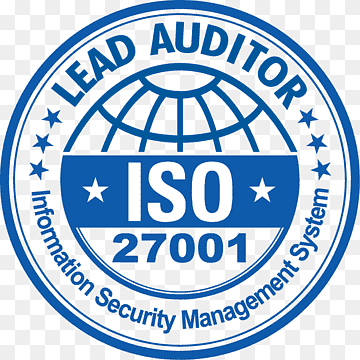Role of a QA Technician
Brief Overview of the Role of a QA Technician in Various Industries:
This section provides a concise introduction to the role of a QA Technician across different industries. It highlights the importance of quality assurance processes in ensuring the reliability and consistency of products or services. Examples of industries where QA Technicians play a crucial role, such as manufacturing, healthcare, food production, and technology, may be mentioned to illustrate the broad applicability of their expertise.
Introduction to the Article’s Focus on Exploring the Responsibilities and Career Path of a QA Technician:
Here, the article introduces its primary focus, which is to delve into the responsibilities and career trajectory of QA Technicians. It acknowledges the diverse nature of their roles and the significance of their contributions to maintaining quality standards. The section may also mention the increasing demand for skilled QA Technicians in various sectors and the potential for career advancement within the field.
Preview of the Article’s Structure and Key Points:
This subsection outlines the structure of the article and provides a preview of the key points that will be covered. It serves as a roadmap for readers, offering an overview of the topics that will be explored in subsequent sections. Additionally, it may highlight specific aspects of the QA Technician role, such as essential skills, day-to-day responsibilities, career advancement opportunities, and frequently asked questions (FAQs) that will be addressed in detail.
Understanding the Role of a QA Technician
Definition and Overview of the Role of a QA Technician:
This section provides a comprehensive definition and overview of the role of a QA Technician. It explains the primary function of QA Technicians in various industries, emphasizing their role in maintaining product quality, ensuring compliance with regulatory standards, and supporting continuous improvement efforts. Additionally, it may explore the different titles or job roles synonymous with QA Technicians, such as Quality Control Technician or Quality Assurance Specialist.
Key Responsibilities and Duties of a QA Technician in Different Industries:
Here, the article outlines the core responsibilities and duties typically performed by QA Technicians across different industries. It delves into specific tasks such as conducting inspections, performing tests, analyzing data, documenting findings, and implementing corrective actions. Examples of industry-specific responsibilities may be provided to illustrate the diverse nature of the role and its applicability in various contexts.
Importance of QA Technicians in Ensuring Product Quality and Compliance with Standards:
This subsection highlights the critical role of QA Technicians in upholding product quality and ensuring compliance with regulatory standards. It explores how QA Technicians contribute to the overall success and reputation of organizations by identifying and addressing quality issues, minimizing defects or errors, and maintaining consistency in production processes. Additionally, it discusses the implications of non-compliance with quality standards and the potential risks to business operations and customer satisfaction.
Essential Skills and Qualifications for QA Technicians
Technical Skills Required for QA Technicians:
This section outlines the technical skills necessary for QA Technicians to excel in their roles. It discusses proficiency in testing tools and methodologies commonly used in quality assurance processes, such as manual testing, automated testing, regression testing, and performance testing. It may also mention familiarity with defect tracking systems, version control tools, and test management software. Additionally, it highlights the importance of staying updated on emerging technologies and industry trends to adapt to evolving QA practices.
- Attention to Detail and Accuracy in Performing Quality Checks and Inspections:
Here, the article emphasizes the significance of attention to detail and accuracy in conducting quality checks and inspections. It discusses how QA Technicians must meticulously review products, processes, or documentation to identify deviations from quality standards or specifications. It explores the importance of thoroughness and precision in detecting defects, errors, or inconsistencies that may impact product quality or safety.
- Communication Skills for Documenting Findings and Collaborating with Cross-Functional Teams:
This subsection highlights the importance of strong communication skills for QA Technicians. It discusses the need for clear and concise communication when documenting findings, reporting defects, or sharing test results with stakeholders. It also emphasizes the ability to collaborate effectively with cross-functional teams, such as developers, product managers, and quality assurance professionals, to address quality issues and implement corrective actions. Effective communication fosters transparency, collaboration, and alignment towards achieving quality goals.
Day-to-Day Responsibilities of a QA Technician
Conducting Quality Inspections and Audits of Products or Processes:
This section outlines the primary responsibility of QA Technicians to conduct regular quality inspections and audits of products or processes. It discusses the importance of systematically reviewing materials, components, or production lines to ensure compliance with quality standards and specifications. It may also explore techniques and methodologies used by QA Technicians to perform inspections, such as visual inspections, measurements, or sampling procedures.
Performing Testing Procedures to Identify Defects or Deviations from Quality Standards:
Here, the article delves into the role of QA Technicians in performing testing procedures to identify defects or deviations from quality standards. It discusses various testing methods employed by QA Technicians, including functional testing, performance testing, usability testing, and regression testing. It highlights the significance of rigorously testing products or systems to uncover potential issues and verify compliance with predefined requirements.
Documenting and Reporting Findings to Relevant Stakeholders:
This subsection emphasizes the importance of QA Technicians in documenting and reporting their findings to relevant stakeholders. It explores the process of accurately recording observations, defects, or non-conformities identified during inspections or testing. It also discusses the role of QA Technicians in preparing detailed reports or documentation to communicate findings to supervisors, quality managers, or other cross-functional teams.
Participating in Continuous Improvement Initiatives to Enhance Quality Processes:
Finally, the article discusses the active involvement of QA Technicians in continuous improvement initiatives aimed at enhancing quality processes. It highlights the importance of proactively identifying opportunities for process optimization, efficiency gains, or quality enhancements. It may also explore how QA Technicians contribute to root cause analysis, corrective action planning, and implementation of preventive measures to prevent recurrence of quality issues. Active participation in continuous improvement fosters a culture of excellence and drives ongoing enhancements in product quality and organizational performance.
Career Path and Advancement Opportunities
Entry-Level Positions and Pathways to Becoming a QA Technician:
This section explores entry-level positions and pathways that individuals can pursue to become QA Technicians. It discusses potential starting roles such as Quality Assurance Associate, Quality Control Inspector, or QA Tester, which may require minimal experience or educational qualifications. Additionally, it outlines common educational backgrounds or certifications that can help individuals enter the field, such as a degree in quality assurance, industrial engineering, or relevant vocational training programs.
Potential Career Advancements and Opportunities for Growth in the Field:
Here, the article delves into potential career advancements and opportunities for growth available to QA Technicians. It discusses how QA Technicians can progress to more senior roles such as Quality Assurance Specialist, Quality Engineer, or Quality Manager through gaining experience, acquiring additional skills, and demonstrating leadership capabilities. It also explores opportunities for lateral movement into related areas such as quality assurance management, regulatory compliance, or process improvement.
Additional Certifications or Training Programs that Can Boost Career Prospects:
This subsection highlights the importance of continuous learning and professional development for QA Technicians seeking to advance their careers. It discusses various certifications or training programs that can enhance career prospects and credibility in the field, such as Certified Quality Technician (CQT), Certified Quality Auditor (CQA), or Six Sigma Green Belt certification. It may also explore industry-specific certifications or specialized training courses relevant to the individual’s area of interest or expertise. Investing in additional certifications or training demonstrates commitment to excellence and can open doors to new opportunities for career advancement and growth.
Real-Life Insights and Success Stories
Personal Anecdotes and Experiences from QA Technicians:
In this section, QA Technicians share personal anecdotes and experiences from their careers. They may discuss challenges they’ve faced, memorable moments, or lessons learned along their journey. These firsthand accounts offer valuable insights into the day-to-day realities of working as a QA Technician, as well as the rewards and fulfillment that come with the role.
Success Stories of Individuals Who Have Advanced Their Careers as QA Technicians:
Here, the article showcases success stories of individuals who started their careers as QA Technicians and have successfully advanced in the field. These success stories highlight the diverse career paths and trajectories within the QA profession. From entry-level positions to senior leadership roles, these individuals share their journeys, achievements, and key milestones that have contributed to their career progression. Their stories inspire and motivate aspiring QA Technicians, demonstrating the potential for growth and success in the field.
Conclusion
Recap of Key Points Discussed in the Article:
This section provides a brief recap of the key points covered throughout the article. It summarizes the main topics discussed, including the role of QA Technicians, essential skills and qualifications, day-to-day responsibilities, career path and advancement opportunities, and real-life insights shared by professionals in the field.
Final Thoughts on the Importance of QA Technicians in Ensuring Product Quality and Compliance:
Here, the article emphasizes the critical role that QA Technicians play in ensuring product quality and compliance with standards. It underscores the importance of their contributions to maintaining customer satisfaction, upholding brand reputation, and mitigating risks associated with product defects or non-conformities. The section highlights how QA Technicians serve as guardians of quality, driving continuous improvement and excellence in their organizations.
Encouragement for Individuals Considering a Career as a QA Technician:
Finally, the conclusion offers words of encouragement for individuals contemplating a career as a QA Technician. It acknowledges the challenges and rewards associated with the profession, while also highlighting the opportunities for growth, fulfillment, and impact. The section encourages aspiring QA Technicians to pursue their passion for quality assurance, invest in their professional development, and embark on a rewarding journey in ensuring product quality and excellence.
FAQs (Frequently Asked Questions) about QA Technicians
1) What are the Main Responsibilities of a QA Technician?
This question addresses the primary responsibilities of QA Technicians, including conducting quality inspections, performing testing procedures, documenting findings, and participating in continuous improvement initiatives. It provides a comprehensive overview of the core duties involved in the role.
2) What Industries Typically Employ QA Technicians?
Here, the article discusses the diverse range of industries that typically employ QA Technicians, such as manufacturing, healthcare, pharmaceuticals, food and beverage, automotive, aerospace, and technology. It highlights the broad applicability of QA skills across various sectors.
3) What Qualifications or Certifications are Required to Become a QA Technician?
This question explores the qualifications and certifications that individuals need to pursue a career as a QA Technician. It may discuss educational requirements, such as a high school diploma or equivalent, as well as any additional certifications or training programs that can enhance career prospects in quality assurance.
4) How Does a QA Technician Differ from Other Quality Assurance Roles?
This question compares and contrasts the role of a QA Technician with other quality assurance roles, such as Quality Assurance Specialist, Quality Engineer, or Quality Manager. It highlights the specific responsibilities, skill sets, and career paths associated with each role, emphasizing the unique contributions of QA Technicians within the quality assurance landscape.
5) What are Some Challenges Faced by QA Technicians, and How Can They be Addressed?
Lastly, this question addresses the challenges commonly faced by QA Technicians, such as tight deadlines, complex testing requirements, and maintaining compliance with regulatory standards. It provides practical strategies and tips for overcoming these challenges, such as effective time management, continuous learning, and leveraging collaboration with cross-functional teams.









